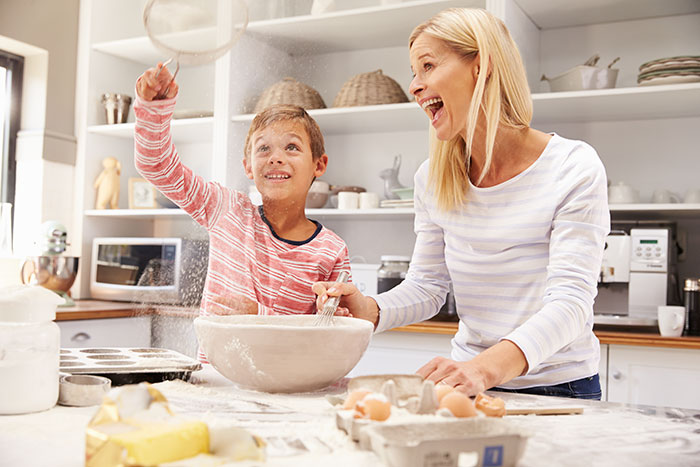I learned it by watching you!” is a tagline that has taken up permanent residence in our collective cultural brain. Even if we don’t remember the actual commercial in which the young son told his father he learned his drug-seeking/abusive behavior by watching him, we know the line. Moreover, we know that it isn’t just a memorable tagline from the War on Drugs. We know that it is scientifically true: our kids learn their habits, tics, traits and even preferences by watching us.
This is true for everything from personal hygiene to taste in entertainment. We, as parents, are our children’s’ first and most important teachers. And if you don’t think that is true, try to think back to the first time you learned that the kids at school had different family structures than you did. That their parents had different employment situations, cultural ties, etc. Do you remember how much it blew your mind to find out that, at your best friend’s house, they didn’t eat the Cheerios you were used to but ate bowls full of Shredded Wheat?
From practically the time they are born, your kids are watching you. They learn first by imitation (speech, motor functions) and then by emulation (personality quirks, etc.narcistic). This means that if you don’t take care of yourself, your kids won’t take care of themselves either. And no, it doesn’t matter how careful or subtle you think you are; your kids will see everything. Moreover, many of your habits can have a direct impact on your child’s immediate health. For example, studies have recently shown that vaping can pose a critical risk to your kids’ pulmonary health–much like the effects of secondhand smoke.
Sometimes this is a good thing. You can and should take this opportunity to teach your kids good habits and personal responsibility.
Other times, this can be dangerous. For example, children who grow up in homes with parents who suffer from alcoholics are more likely to become alcoholic themselves. Or if they see their parents treat a prescription drug addiction like it isn’t a big deal, they will be less likely to seek prescription drug addiction treatment for themselves if they find themselves with a similar problem.
It isn’t just your physical health behaviors that will influence your kids. Your mental and emotional responses to life are also likely to be picked up on and inherited as well. Again, this isn’t pop psychology. There is evidence proving that mental and emotional health issues can be genetically hereditary. I.E. If one or both parents has a mental illness like depression, schizophrenia, etc., the child has a chance of developing that same disease.
So what can you do? How do you make sure that your kids grow up with good habits? Obviously “do as I say, not as I do” hasn’t worked for any generations of parents so far. How do you change the narrative for your kids?
Take Care of Yourself
Eat a healthy and nutritious diet. Eating healthfully and conscientiously will teach your kids to choose their foods wisely as they get older and gain more control over their diets. Don’t give out candy or junk food solely as rewards because that can enforce negative food ideas and encourage binging and unhealthful behaviors later on like bingeing (remember how you ate when you first left home after high school?).
Exercise regularly. This is particularly important if you have kids who hate their phys ed classes at school. Show them that exercise and working out can be fun! Find something you can do together. Practice proper personal hygiene. Get your kids into the habits of showering and proper skincare early so it won’t be such a fight when puberty hits.
Both of these behaviors will help not just reinforce good health habits like eating well and staying active, they will help reinforce the acceptance of one’s shape and weight. This is the best way to help counteract all of the damaging ideas forced upon them by the beauty and media industries.
Mind Your Mentals
Be open about your emotions and any mental issues you might be facing. If you’re struggling, see a therapist. The more open and matter of fact you are about therapy and good mental health care/self care, the easier it will be for your kids not only to get help but to recognize the signs that they might need help.
Basically, try to set a good example. At the same time, remember that you are human. If you mess up, that’s okay. After all, your kids need to see that mistakes happen and it’s possible to recover from them, right?

Leave a Reply